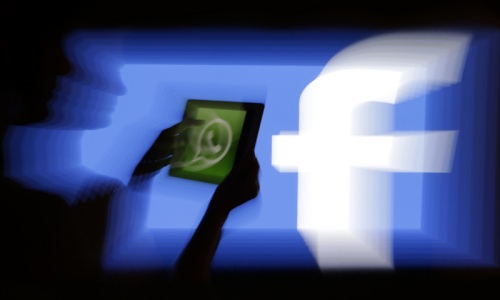With December and January being the holiday and wedding season here, Pakistani Facebook users’ newsfeed have lately been full of updates of friends enjoying vacations at some exotic location or people tying the knot with the love of their life (or so it seems).
On the other hand, users currently experiencing less exciting events and no life-changing moments complain of gloomy winter nights, comparing their lives endlessly with their social media counterparts. This happens to the best of us; we forget that social media sites like Facebook represent only a part of an individual’s life – only the best and glossy bits – and sometimes are far from the reality they may be experiencing behind the million dollar smile.
While Facebook has grown in popularity in Pakistan and abroad with more than a billion users currently, there are now studies being conducted worldwide to measure and analyse the negative psychological consequences of this social media website. Such studies have associated Facebook with an increase in feelings of jealousy, social tension, isolation and depression amongst frequent users.
These studies reveal that those who spend more time on social media sites such as Facebook are more prone to such negative emotions. For example, a research study conducted by the University of Michigan, which tracked eighty-two participants for two weeks, found that browsing on Facebook can reduce a young person’s sense of well-being and contentment. People log on to fulfil their need for social connection, but can actually end up feeling isolated and lonely, seeing the entire world doing better than them socially, financially or professionally.
Firoozeh Mogal, a forty-year old banker, says “It depends on how one takes it. I am happy to see what my relatives and friends are doing. It’s no complication. It’s all about the state of the mind and how positively or negatively a person takes things.” Shireen, a 58-year old paediatrician in Dubai, agrees and says that for her it is a good tool to keep in touch with her relatives based in Pakistan and Europe.
However, several other younger users disagree and say that people use the platform to compete and show off their lifestyles. Apart from checking-in to expensive restaurants and cafes every other day, users have also started posting photographs and details of the latest branded products that they have purchased at some of the most expensive stores in town.
From being a platform to share cherished moments with friends and families, Facebook is becoming the reason people hunt for moments to capture, anything from what they ate for dinner to what they witnessed on the roads while commuting. In the era of selfies, we have a large number of young women and even men dressing up at home and posing for the sole purpose of getting a new and improved Facebook profile picture, rather than dressing up and going out to socialise.
Madiha Sheikh, a twenty-eight year old media professional, shares her experience of the site, “Nowadays, people tend to judge you more on the basis of your Facebook profile page rather how you are in real life. And when someone encounters you in person, they still tend to think that whatever is displayed on your networking pages is true! People hold you accountable on the basis of your posts, activities and links that have been shared and even judge your morals based on these updates.”
Sarah Batool Haider, a twenty-four year old journalist, says she thinks Facebook sharing is more about a particular moment and how people are feeling at a certain time rather than being an apt depiction of their entire life. She thinks that people also share not only the good aspects of their life, but also challenges through sad posts and status updates. While some of these updates may be generic, others get a little too personal, with people complaining about their ex-girlfriend or mother-in-law, inviting the world to comment what would generally be considered highly private matters.
Another popular trend on the website is that of users posting motivational quotes in the form of pictures or bumper stickers. While sometimes these can be inspiring for users to read, an overdose can defeat the purpose. Rahat Haider, a twenty-one year old college student, says he feels there is something wrong with him when he is feeling low and sees all these stickers online telling him “to be happy”, “to find peace within”, “to make a move and change his life”, and so on. There is only so much of Rumi, Khalil Gibran and Paulo Coelho that you can fathom in a day, he says.
Facebook presents a very simplistic, black and white view of situations and people, and with the Timeline feature can give the impression that life is passing by very rapidly. It is a great way to stay in touch with people and catch up with the latest news and trends, but it can also distract us during real life interactions, where we are constantly refreshing the website on our cell phones in the hopes of catching something exciting. People are not completely present in their offline interaction, which can be disappointing to say the least.
My personal opinion is that users should learn to strike a balance and not make checking Facebook every day or every hour a top priority. It should not become a substitute for phone calls or in-person interactions. Every moment need not be captured and shared; it needs to be felt and enjoyed without the stress of finding free Wi-Fi. Try spending some time completely logged off. Do not use or expect Facebook likes to validate your worth or experiences in life!














































